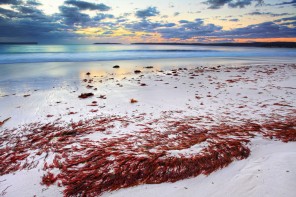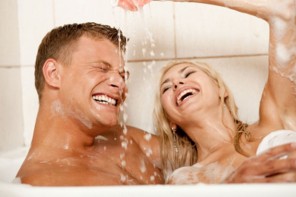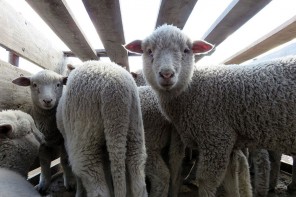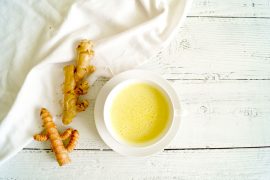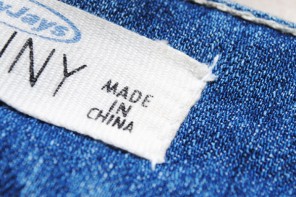Written by: Staff Reporter
My attempts to live without plastic bottles played out like an addict trying to wean themselves off a dirty habit. There are five distinct stages on the road to recovery.
Stage one – awareness and early acknowledgement
I watched an American documentary called Tapped, which got me thinking about the bottled water industry – the way bottled water is labeled ‘pure‘ as if the stuff coming out of our taps was somehow dangerous.
So I tried to figure out when it was that I became addicted to bottled water, because that certainly was the case – I was never without a bottle of water. It came with me everywhere. I told myself that I was being kinder to the environment, and my pocket, by using the same bottle for about a week and refilling it with tap water or filtered water.
I was convinced that drinking at least eight glasses of water a day is healthy – certainly healthier than drinking sugary drinks. But that water does not have to come in a bottle – it is just easier to get your quota. I had fears of being stuck somewhere remote, or even just in my car, and having the thirst of ages with no means to quench it, because I didn’t have the beloved bottle of water with me. But I don’t remember a point where this need to have a bottle first set in. It just gradually infiltrated my life, and I didn’t even realize it was a problem until I tried to change it.
I have admitted it – I found it impossible to live without plastic bottles.
Stage two – research and consideration
Once I realized how much plastic pervaded my life, I started to learn more about it.
Tapped starts with the concept that water is a basic human right, and not a commodity that should be mined by beverage companies and bought and sold. In South Africa, according to the National Bottled Water Standards organization, the bottled water market is said to be worth over R1,7-billion.
Besides the commercial aspects of bottled water, there is the pollution. South Africa has a serious problem with litter, and a lot of this is plastic, which if it doesn’t end up in the dustbin can wind up on our roads, parks and rivers. Many people try and make themselves feel better about the excessive consumption of plastic, by saying that most of it gets recycled anyway. Not so. It is pervading our landfills, trashing our oceans and harming animals.
The plastic that bottles are made of, and that much of our food comes packaged in, because it is transluscent, is called Polyethylene terephthalate (PET). And PET is 100% recyclable. Most of our shampoo bottles and household cleaning agents come wrapped in High-density polyethylene (HDPE), which is also recyclable. Both are derived from crude oil products.
PET plastic recycling South Africa (Petco) says that it in South Africa, the aim in 2010 is to collect and recycle about 38% (34 580tons) of all the beverage PET that is thrown out after consumption. This means that a fraction of the plastic bottles that we consume are being recycled. The rest end up on rubbish dumps, or strewn across the landscape.
There are seven companies in South Africa that recycle plastic. And the tonnages they are recycling are increasing, as the demand for recycled plastic increases. This type of green industry is environmentally sound and creates jobs in a number of areas.
Under very stringent recycling and food safety standards, plastic bottles can be recycled to be used as food-grade plastic again. Under less stringent conditions, plastic bottles can be recycled to be used to make non-food containers.
It can also be recycled to form polyester. The filling in our pillows and duvets – hollowfibre – it could be recycled plastic. Woolworths is now advertising that its hollow fibre pillows are made from recycled plastic bottles.
Petco says that it takes nineteen 500ml PET bottles to make the fibre for a standard pillow.
Polyester also makes much of our clothing. In fact, during the 2010 World Cup, those teams sporting Nike gear, were wearing togs made from 100% recycled polyester. The company claims that this diverted 13 million plastic bottles from ending up on rubbish dumps.
Stage three – exploring recovery
Recycling, when it happens, is great. However, I decided that the plastic water bottle was not a necessity, and I should cut it out altogether.
But what if I had a thirst emergency when I was not near a tap? Is there anything a bit more environmentally friendly, and at the same time sexier than a camping flask, to wrap my tap water in?
The answer is yes, and the most common alternatives are aluminium, and stainless steel water bottles. By canvassing a number of stores in Johannesburg and researching online, it seems that aluminium bottles are more easily available and retail for between R30, and R50.
I have yet to find a stainless steel bottle in Johannesburg, but online research shows that they retail for about R130, and are usually imported.
BUT… stainless steel is said to be the better option. It is an inert metal and doesn´t leach, which is why utensils and cookware are made of steel. Aluminum bottles should be lined to prevent the metal from leaching into your water, which could be harmful and affect the taste.
Stage four – early recovery
With the difficulty of finding a stainless steel bottle, I decided to try aluminium. It had a sports nozzle, which is actually very frustrating if you are not on the run, so it is unlikely to be used outside of gym.
Going back to basics, I invested in a good old fashioned glass for my desk at work. A mere R4,99, and the water tastes great.
I no longer have a bottle in my car, because, lets get real, I don’t need it. If I am at a restaurant I ask for tap water, and if someone tries to foist bottled water on me (it happens often with the number of conferences and functions a journalist attends), I hope I have the conviction to say no.
Stage five – active recovery and maintenance
It has only been a week, so I cannot comment on this with confidence. But I hope that in time I will be able to smile when I think about the minimal plastic in my life, and convince others that it is a habit worth kicking.
Tap water is cheaper, causes less pollution, and does not use more energy and water to be bottled.
The liveeco team

